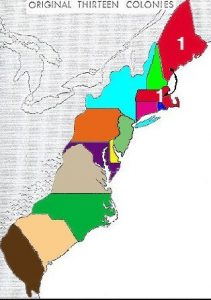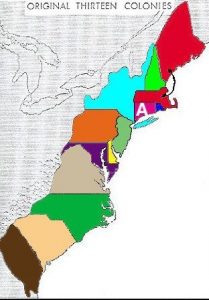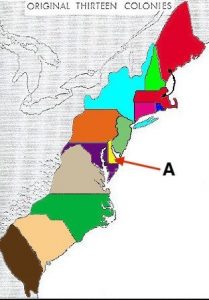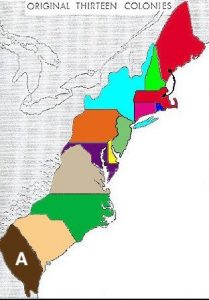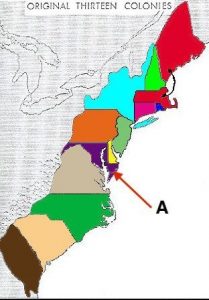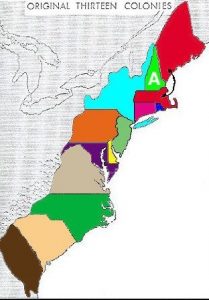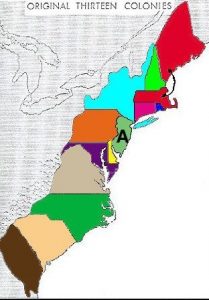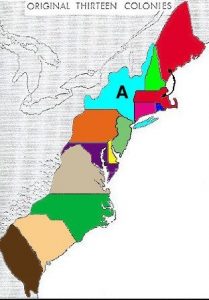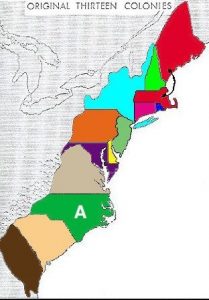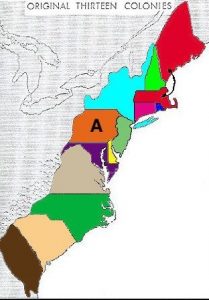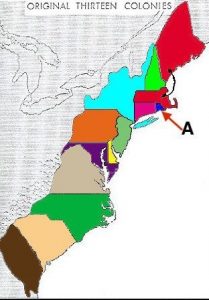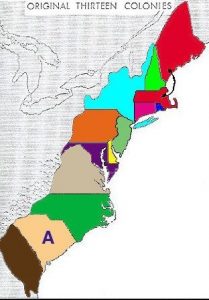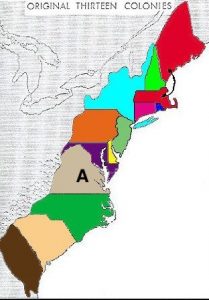13 colonies quiz
Thirteen Colonies Table





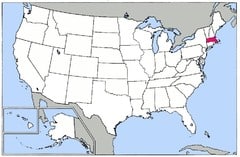

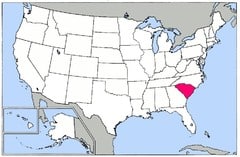
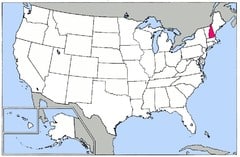




13 Colonies Test Answers
1.The thirteen colonies were ruled by what country?
- England
- Ireland
- Portland
- Cuba
2. Which of these states was among the original 13 colonies?
- A&C
- Texas
- Virginia
3. Why did the colonists come to America?
- They were seeking gold and money.
- They wanted a better life.
- They sought religious freedom.
- All of the above.
4. Which colony was the smallest of the 13 colonies?
- New Jersey
- Rhode Island
- New Hampshire
- Massachusetts
5. This was the first English settlement and is known as the “Lost Colony”.
- Massachusetts
- Jamestown
- New Jersey
- Roanoke
6. Identify the colony.
- Maine
- New Hampshire
- Connecticut
- Massachusetts
7. Identify the colony
- Massachusetts
- Connecticut
- New Hampshire
- Rhode Island
8. Identify the colony.
- New Jersey
- Connecticut
- Maryland
- Delaware
9. This settlement was started in Massachusetts for religious freedom.
- Roanoke
- New York
- Jamestown
- Plymouth
10. Which colony was the furthest south among the 13 colonies?
- Massachusetts
- New Hampshire
- New Jersey
- Georgia
11. This settlement was started in Virginia in the hopes of finding gold and other riches.
- Plymouth
- North Carolina
- Jamestown
- Connecticut
12. Which colony was the furthest north?
- Massachusetts
- Connecticut
- Virginia
- Georgia
13. What product was a valuable cash crop for plantation owners in the southern region?
- lettuce
- wheat
- corn
- tobacco
14. Identify the colony.
- South Carolina
- Georgia
- North Carolina
- Virginia
15. Identify the colony.
- Maryland
- Delaware
- Pennsylvania
- New Jersey
16. What would a cobbler make?
- medicine
- wheels
- horseshoes
- shoes
17. Identify the colony.
- New Hampshire
- Massachusetts
- Connecticut
- Rhode Island
18. Identify the colony.
- Maryland
- New Jersey
- Delaware
- Virginia
19. Identify the colony.
- New York
- Pennsylvania
- New Jersey
- New Hampshire
20. Identify the colony.
- Virginia
- Georgia
- North Carolina
- South Carolina
21. Identify the colony.
- New York
- Virginia
- Pennsylvania
- New Hampshire
22. Identify the colony.
- Massachusetts
- Connecticut
- Rhode Islands
23. Identify the colony.
- North Carolina
- South Carolina
- Virginia
24. Identify the colony.
- South Carolina
- North Carolina
- Virginia
- Georgia
13 Colonies Similarities and Differences
■ They settled in New England to gain religious freedom.
■ Most colonists grew their own food.
■ The soil was too thin and rocky and the climate too harsh for the colonists to grow cash crops.
■ They turned to fishing, lumbering, fur trading, and metal working to nourish their economy.
■ New England colonies also participated in the selling of slaves to the southern colonies.
■ Most luxury goods had to be bought from England.
■ Their goal was to farm in order to make money.
■ Land was more fertile than in New England and promoted farming of cash crops: corn/wheat/fruit.
■ An abundance of rivers allowed for transportation of goods between the colonies.
■ Mills to grind grains developed and supported local economies.
■ Relationships with Native Americans were better in these colonies than in the others.
■ This area was also the most ethnically diverse.
■ Their goal was to find gold in order to obtain wealth as rapidly as possible.
■ Tobacco and rice became the major cash crops of the southern colonies.
■ Indentured servants were first used. As their numbers dwindled, slaves were used.
■ A small number of people owned large amounts of land.
■ Religion and religious freedom were not large concerns for most southern colonists.
virginia
north carolina
south carolina
georgia
cash crops- rice, tobacco, indigo
indentured servants
indentured servants
african slavery
a location to place all criminals in englands’ jails
no drinking
hilly, forested, rocky soil
natural resources: fishing, lumber
family and religion number one
COLD
fertile land
characteristics of north and south
lots of natural resources
iron mines
2. small and owners/Yeomen farmers
3. indentured servants
4. black slaves
family: came as a whole fam
women’s rights: married young, no property rights or any rights at all
family: unmarried men, some women
women’s rights: could own property, highly desired

